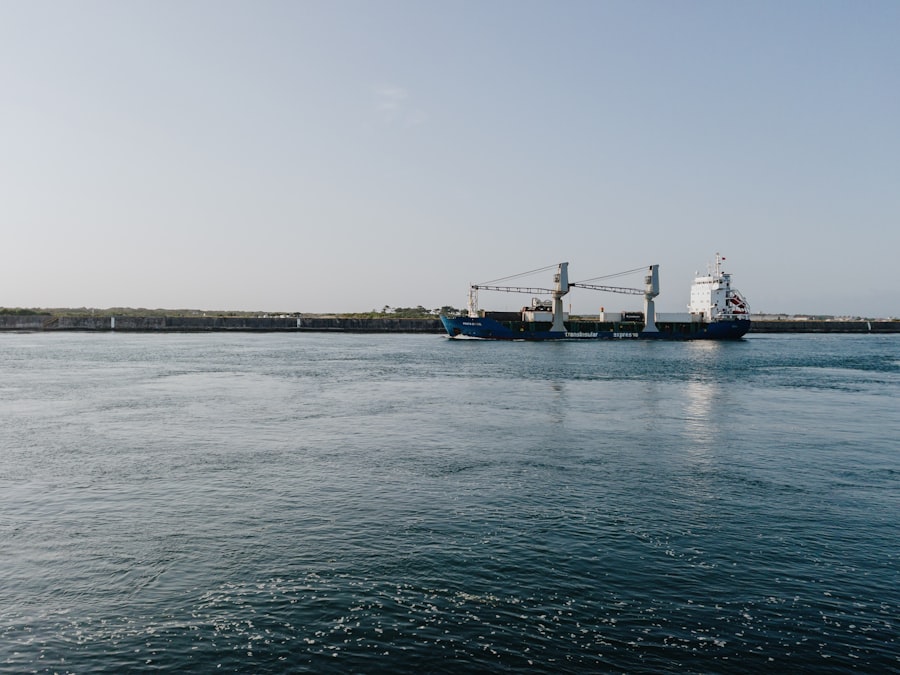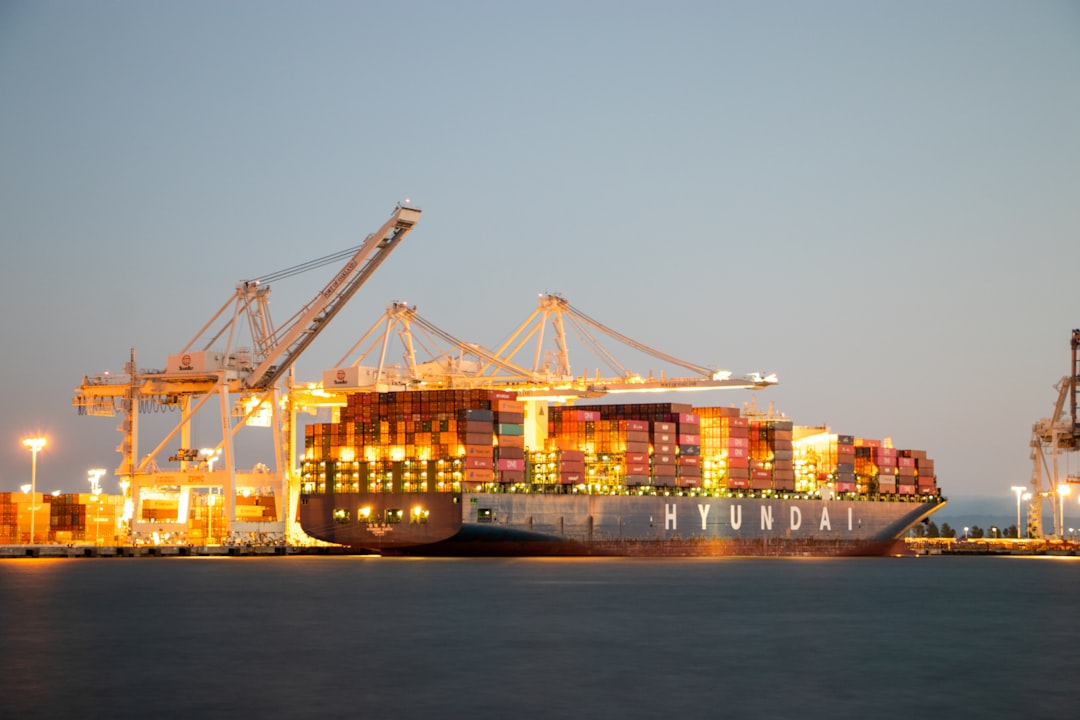The Suez Crisis of 1956 marked a pivotal moment in the history of international relations and trade law. Triggered by Egypt’s nationalization of the Suez Canal, the crisis saw a military intervention by Britain, France, and Israel, leading to a complex geopolitical standoff. The canal was a crucial artery for global trade, particularly for oil shipments from the Middle East to Europe.
The crisis not only disrupted shipping routes but also highlighted the vulnerabilities of international trade systems that relied heavily on specific geographic chokepoints. As a result, the incident prompted a reevaluation of international trade law, emphasizing the need for frameworks that could better manage such crises in the future. The repercussions of the Suez Crisis extended far beyond immediate military and political outcomes.
The crisis catalyzed discussions around the establishment of more robust international legal mechanisms to address trade disputes and protect maritime interests. Consequently, it became evident that international trade law needed to evolve to accommodate the complexities of geopolitical tensions, thereby laying the groundwork for future treaties and agreements aimed at safeguarding global commerce.
Key Takeaways
- The Suez Crisis had a significant impact on international trade law, leading to the development of new regulations and principles.
- International organizations played a crucial role in resolving trade disputes during the Suez Crisis, highlighting the importance of multilateral cooperation in trade negotiations.
- The aftermath of the Suez Crisis saw a need for navigating tariffs and trade restrictions, leading to the development of new strategies for international trade.
- Lessons learned from the Suez Crisis continue to inform modern international trade law, emphasizing the importance of adaptability and resilience in the face of global challenges.
- The Suez Crisis influenced the development of bilateral trade agreements, shaping the landscape of international trade relations in the years to come.
The Role of International Organizations in Resolving Trade Disputes during the Suez Crisis
During the Suez Crisis, international organizations played a crucial role in mediating tensions and seeking resolutions to trade disputes. The United Nations, in particular, emerged as a key player, advocating for peaceful negotiations and the withdrawal of foreign troops from Egyptian territory. The UN General Assembly passed resolutions calling for an immediate ceasefire and the establishment of a United Nations Emergency Force (UNEF) to supervise the withdrawal of invading forces.
This intervention not only aimed to restore peace but also sought to ensure that international trade routes remained open and accessible. The involvement of international organizations during this tumultuous period highlighted the necessity for collective action in addressing trade-related conflicts. The crisis served as a catalyst for strengthening the role of such organizations in future trade disputes, emphasizing their capacity to facilitate dialogue and promote adherence to international law.
As nations recognized the importance of multilateralism in resolving conflicts, the framework for international trade law began to incorporate mechanisms that would allow for more effective dispute resolution through diplomatic channels.
Navigating Tariffs and Trade Restrictions in the Aftermath of the Suez Crisis

In the wake of the Suez Crisis, countries faced significant challenges in navigating tariffs and trade restrictions that arose from heightened geopolitical tensions. The conflict led to an increase in protectionist measures as nations sought to shield their economies from potential disruptions caused by ongoing instability in the region. Tariffs were raised, and trade barriers were implemented, complicating international commerce and leading to a fragmented trading environment.
This period illustrated how political conflicts could directly influence economic policies, resulting in a ripple effect across global markets. As nations grappled with these new realities, they began to reassess their trade strategies and relationships. The crisis prompted many countries to diversify their trading partners and reduce reliance on specific routes or commodities.
This shift not only aimed to mitigate risks associated with geopolitical instability but also encouraged nations to explore alternative markets and supply chains. The aftermath of the Suez Crisis thus served as a critical lesson in the importance of adaptability within international trade frameworks, highlighting the need for flexibility in response to changing global dynamics.
Lessons Learned from the Suez Crisis for Modern International Trade Law
| Lessons Learned from the Suez Crisis for Modern International Trade Law |
|---|
| 1. Respect for sovereignty and territorial integrity of nations |
| 2. Importance of diplomatic negotiations and peaceful resolution of disputes |
| 3. Need for clear legal frameworks and international agreements in trade and commerce |
| 4. Recognition of the impact of trade disruptions on global economy |
| 5. Emphasis on the role of international organizations in regulating trade and resolving conflicts |
The Suez Crisis provided several key lessons that continue to resonate within modern international trade law. One significant takeaway was the necessity for robust legal frameworks that can effectively address disputes arising from geopolitical conflicts. The crisis underscored the limitations of existing treaties and agreements at that time, revealing gaps in mechanisms designed to manage trade disruptions caused by military actions or political tensions.
As a result, subsequent developments in international trade law have focused on creating more comprehensive agreements that include provisions for conflict resolution and emergency measures. Another important lesson from the Suez Crisis was the value of multilateral cooperation in maintaining global trade stability. The crisis demonstrated that unilateral actions could lead to widespread economic repercussions, affecting not only the countries directly involved but also their trading partners worldwide.
In response, nations began to prioritize collaboration through international organizations and treaties aimed at fostering dialogue and cooperation.
The Influence of the Suez Crisis on Bilateral Trade Agreements
The Suez Crisis had a profound impact on bilateral trade agreements, prompting countries to reconsider their trading relationships in light of geopolitical realities. In the aftermath of the crisis, nations recognized the need for more secure and stable trading partnerships that could withstand external pressures. This realization led to an increase in bilateral agreements aimed at fostering economic cooperation and reducing vulnerabilities associated with reliance on specific routes or commodities.
As countries sought to strengthen their economic ties, they began to negotiate agreements that included provisions for dispute resolution and mechanisms for addressing potential disruptions. These bilateral agreements often emphasized mutual benefits and shared interests, reflecting a shift towards more collaborative approaches in international trade. The influence of the Suez Crisis on these agreements can still be seen today, as nations continue to prioritize stability and resilience in their trading relationships.
The Suez Crisis and its Effect on Maritime Trade Regulations

The Suez Crisis had significant implications for maritime trade regulations, highlighting vulnerabilities within existing frameworks governing shipping routes and practices. The disruption caused by the crisis prompted a reevaluation of maritime laws, leading to calls for enhanced regulations that could better protect shipping interests during times of conflict. As nations recognized the importance of safeguarding maritime commerce, efforts were made to strengthen international conventions governing shipping practices and navigation rights.
In response to the challenges posed by the Suez Crisis, countries began to collaborate on developing more comprehensive maritime regulations that addressed issues such as navigation safety, cargo security, and environmental protection. These efforts aimed not only to prevent future disruptions but also to promote confidence among trading partners regarding maritime operations. The evolution of maritime trade regulations following the Suez Crisis reflects a broader recognition of the interconnectedness of global commerce and the need for robust legal frameworks to support it.
The Suez Crisis and the Evolution of International Trade Dispute Resolution Mechanisms
The Suez Crisis served as a catalyst for the evolution of international trade dispute resolution mechanisms, highlighting the inadequacies of existing frameworks at that time. As nations grappled with the fallout from the crisis, there was a growing recognition of the need for more effective methods to address trade-related conflicts arising from geopolitical tensions. This realization led to significant developments in dispute resolution mechanisms within international trade law.
In response to lessons learned from the Suez Crisis, countries began to establish more formalized processes for resolving disputes through arbitration and mediation. These mechanisms aimed to provide neutral platforms for dialogue and negotiation, allowing parties to address grievances without resorting to military action or unilateral measures. The evolution of these dispute resolution mechanisms has been instrumental in shaping contemporary international trade law, emphasizing the importance of peaceful resolution methods in maintaining global commerce.
The Suez Crisis and its Implications for Import and Export Regulations
The Suez Crisis had far-reaching implications for import and export regulations, prompting countries to reassess their policies in light of geopolitical uncertainties. As nations faced disruptions in trade routes and supply chains, they began to implement stricter regulations governing imports and exports to protect their economies from potential shocks. This period saw an increase in customs controls, tariffs, and other measures aimed at safeguarding domestic industries while navigating an increasingly complex global trading environment.
In response to these challenges, countries also sought to enhance cooperation with trading partners through bilateral agreements focused on import-export regulations. These agreements often included provisions aimed at streamlining customs processes and reducing barriers to trade, reflecting a desire for greater efficiency amidst uncertainty. The implications of the Suez Crisis on import and export regulations continue to resonate today as nations strive to balance protectionist measures with the need for open markets.
The Suez Crisis and the Development of International Trade Law Principles
The Suez Crisis played a significant role in shaping fundamental principles within international trade law. As nations confronted the challenges posed by geopolitical tensions, there was a growing emphasis on principles such as free trade, non-discrimination, and mutual respect among trading partners. These principles became essential components of subsequent treaties and agreements aimed at promoting stability and cooperation within global commerce.
Moreover, the crisis underscored the importance of adhering to international legal norms when addressing trade disputes arising from conflicts. As countries recognized that unilateral actions could lead to widespread economic repercussions, there was a concerted effort to establish frameworks that prioritized dialogue and negotiation over confrontation. The development of these principles has been instrumental in guiding contemporary international trade law, fostering an environment conducive to collaboration among nations.
The Suez Crisis and the Role of Diplomacy in Trade Negotiations
Diplomacy emerged as a critical tool during the Suez Crisis, illustrating its importance in navigating complex trade negotiations amidst geopolitical tensions. As nations sought resolutions to conflicts arising from the crisis, diplomatic efforts became essential in facilitating dialogue between conflicting parties. This period highlighted how effective diplomacy could mitigate tensions and pave the way for constructive negotiations aimed at restoring stability.
The lessons learned from diplomatic efforts during the Suez Crisis continue to inform contemporary approaches to trade negotiations. Countries now recognize that successful negotiations often require patience, understanding, and a willingness to engage in dialogue even amidst challenging circumstances. The emphasis on diplomacy as a means of resolving disputes has become a cornerstone of modern international trade law, reflecting a commitment to peaceful resolution methods that prioritize collaboration over confrontation.
Applying Suez Crisis Insights to Current Trade Law Challenges
The insights gained from the Suez Crisis remain relevant as nations confront contemporary challenges within international trade law. Issues such as rising protectionism, geopolitical tensions, and disruptions caused by global events echo many of the dynamics observed during the crisis. As countries navigate these complexities, they can draw upon lessons learned from history to inform their approaches to trade negotiations and dispute resolution.
In particular, the emphasis on multilateral cooperation and robust legal frameworks remains crucial in addressing current challenges within international trade law. By prioritizing collaboration among nations and fostering dialogue through established mechanisms, countries can work towards mitigating risks associated with geopolitical tensions while promoting stability within global commerce. The legacy of the Suez Crisis serves as a reminder that effective responses to contemporary challenges require not only legal frameworks but also a commitment to diplomacy and cooperation among trading partners.
International Trade Law is a complex field that often intersects with various global issues, such as environmental concerns and resource management. A related article that delves into these intersections can be found on MyGeoQuest, which explores the implications of international trade on environmental sustainability and resource allocation. This article provides valuable insights into how trade agreements and legal frameworks can influence global resource distribution and environmental policies. For more information, you can read the full article on their website by following this link.
WATCH NOW! Unlocking Disaster: 7 Choke Points That Could Fracture Our Connected World Overnight
FAQs
What is International Trade Law?
International trade law is a set of rules and regulations that govern the global exchange of goods and services between countries. It covers a wide range of issues including tariffs, trade agreements, intellectual property rights, and dispute resolution.
What is the Suez Canal?
The Suez Canal is an artificial waterway in Egypt that connects the Mediterranean Sea to the Red Sea. It is a crucial trade route, providing a shortcut for ships traveling between Europe and Asia.
What is the significance of the Suez Canal in international trade?
The Suez Canal is a vital artery for international trade, as it allows ships to avoid the lengthy and costly journey around the southern tip of Africa. It is estimated that around 12% of global trade passes through the canal each year.
How does International Trade Law relate to the Suez Canal?
International trade law plays a significant role in regulating the passage of goods through the Suez Canal. It governs issues such as transit rights, customs procedures, and the resolution of disputes related to the canal.
What are some recent developments in International Trade Law related to the Suez Canal?
Recent developments in international trade law related to the Suez Canal include discussions about the impact of the canal’s temporary closure in 2021 due to the grounding of the container ship Ever Given. This incident raised questions about liability, insurance, and the legal implications for the global shipping industry.
